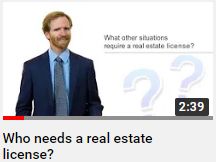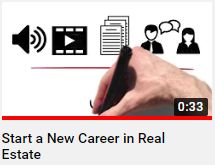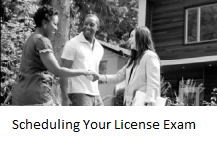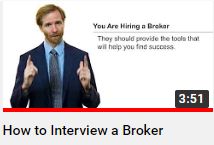Introduction
Real Estate is an exciting career field. It comes with the promises of working your own schedule, and making as much money as you are worth! Before you can take advantage of these benefits, you need to understand the industry, and what is required legally to work in it.
Why do I need a real estate license?
The Division of Real Estate is tasked with protecting the public when it comes to buying and selling their homes. For most of us, our home is our largest asset, with a lot of equity tied into it. Without some regulatory oversight, many individuals could lose that equity on a bad deal, or simply due to ignorance about the possibilities that are open to them. For this reason the law requires that anyone who is representing others to sell their real property must hold a license. This allows the Division of Real Estate to do background checks on licensees, and to keep records on where they live and work, in order to follow up on any complaints that arise from transactions that might go south.
If you have a drive and a will to make a difference in people’s lives, and help them find the right home for them, you have a lot of opportunity in the real estate industry. You can get licensed, and then go out and represent families, couples, individuals, anyone that is looking for the American Dream of owning their own home.

Do I Qualify for a Real Estate License?
The Division of Real Estate has clearly spelled out the requirements to get a real estate license.
-
Honesty and integrity.
How does the Division of Real Estate judge a person’s honesty and integrity? It all comes down to your past record. If you have any felonies in the last 5 years, or if you have any misdemeanors dealing with fraud, misrepresentation, theft, or dishonesty, you cannot get licensed as a real estate agent. Simple math, if you can’t play nice in society already, then you won’t be allowed to represent clients in real estate transactions.
-
Minimum age of 18 years.
Only adults can be licensed as real estate agents. You may be a smart kid, but there are liability issues at stake in large real estate transactions. We need competency, and the ability to take responsibility for the work that you do.
-
High school diploma or equivalent.
Real estate transactions deal with contracts, timelines, accurate communication, office skills, and good organization. At a minimum, the Division requires that you have a high school diploma.
-
Complete the 120 hour Sales Agent Pre-License Course.
No college is required, but the Division does have a specific curriculum that has been put into law that every real estate agent must complete. This includes primarily laws and rules about agency and contract law, but also includes real estate vocabulary, risk management, property management, ownership laws and more.
-
Pass the state license exam.

The state license exam is 130 questions, multiple choice, and it is split into 2 parts: National Law, and Utah Law. You must take the exam at a proctored facility.
If you can match these 5 requirements, then you can go to the state Division of Real Estate and get your real estate license. So what then are the 5 simple steps to start selling homes?
Key Takeaways:
- Make sure you qualify for a real estate license before you start the next step.
Related Articles:
Step 1: Complete the Sales Agent Pre-License Course
The first step is to complete the course that is required by the Real Estate Commission, Real Estate Division, and Department of Commerce. You can see which schools are approved on the Division of Real Estate website. So how do you choose which school has the best program?
Choose a Pre-License School
The first thing to remember is that schools are competing for your business. As you enter the real estate industry, you are going to be designing marketing materials for your own services, so take this opportunity to evaluate the schools that want to offer you the required education. Look through each feature that they offer, and ask yourself if this a quality program that adds value to me, the student? What is it that you value?
When you are choosing a school, these should be your priorities:
- Pass the license exam
- Learn the real estate trade
- Get a great value
Pass the License Exam
Passing the license exam is in the 1st position because no matter how well you learn the trade, and no matter what value you get from the course, none of it will do you any good unless you are able to pass the license exam. If you can’t pass the exam, then you can’t work as an agent! This is the number one priority for choosing a school.
The state doesn’t publish school pass rates, so you might have a difficult time truly ranking them by this criterion, but you can get some details from student reviews and from school claims. Be wary of the pass rates claims, though. A good marketing mind can spin any stats to sound more impressive than they are. A school with “90% pass rates!” might mean that students had to take the test 5-10 times to achieve that number. First time pass rates are much more valuable.
Learn the Real Estate Trade
Number 2 can also be hard to judge, but let me tell you a little secret. You will learn the trade if the instructors are actively working in the industry. If they are professional teachers, and no longer practice, then they may have great knowledge stored up from years gone by, but it won’t be as relevant as information you will get from actively working agents. Make sure your school is taught by experts who are practitioners of the craft.
Working in the industry is not enough. If the teacher has a real estate license, that is the bare minimum. You really want instructors that are involved in more than their own business. Look for those experts who donate their time. Look for those that serve on industry committees. Find those that have been leaders in local associations, or who have chaired committees or served on executive committees. Find those that have served on professional standards panels, and who have participated in the law making process as Commissioners, or other positions.
Here’s a note for you too. If you want to truly be successful, you will also find ways to get involved. Join a committee, attend city council meetings, find a place where you can contribute to the industry as a whole, and not only will you find more satisfaction in your career, but you will also find more success, thanks to the experience you will gain, and the relationships you will make along the way.
Get a Great Value
Great value comes from getting a great product as a great price. You may not be able to actively negotiate the price of your real estate course, but you can navigate the options that are available, and find the most value, for the lowest cost.
Now before we get too far down the line of “saving money,” we need to be clear that we are not talking about penny pinching. We put the “value” ahead of the “cost” in importance. You should not be looking for “cheap,” you should be looking for what will provide the greatest benefit, and then decide if the cost is worth it. If you paid $100,000 for a pre-license course, would it be worth it? It would if you make $400,000 in your first year of real estate. Or even in your first 4 years. The cost can be great, as long as the value is there.
As a real estate agent, you need to change your mindset from the consumer mind set of “cheapest deal” to the business mindset of “greatest value”. Be willing to spend money to make money. Identify what elements of the pre-license education are the most valuable to you, and hone in on those aspects as you select a course.
Complete the Course
As a real estate agent, you will most likely be an independent contractor, which means that you won’t have a boss that will be telling you what to do, which hours to work, or how to do your job. You will have the freedom to decide what works best for you, and discover your talents and abilities so that you can leverage them to bring wealth and happiness to your clients, customers, and also to yourself.
You know your schedule. You are probably still working at another job while you complete your education. That is wise. You should never quit a job before you have another one lined up. As an independent entrepreneur, your time is valuable. The required 120-hour Sales Agent Pre-License Course must be taken to its completion, but you can create your study time around what works best for you.
Schedule Your Time
Open your calendar right now. Go ahead, I’ll wait. Now take 120 hours, and think about how soon you want to complete the course. Be realistic, the Division lets you take up to 8 hours a day, but if you are working a job already, then you don’t have time for a second one. Not to mention that learning is harder than working. Very few individuals can attend school for 8 hours a day and still retain all the information from AM to PM.
Let’s say you want to complete the course in 3 months. That is a very reasonable, and ambitious timeline to complete this course. That means that you need to complete 40 hours of class time every month. That means that you need to complete 10 hours of class every week. That means you need to complete 2 hours every weekday, or 5 hours each day of the weekend. If you miss a day, then you won’t make your 3 month deadline. So do you have your calendar open? Schedule that time in there right now. Whichever method works for you is fine, as long as you have the time set aside from day one. If you do not do this right now, you will quickly find that you are behind in your plan.
Is your calendar filled out? Great! Now get to work. This is an important part of time management, especially when you are working for yourself. You need to get used to scheduling time for the regular work tasks, especially the hard ones, so that you are prepared to focus your time on them. Even putting time on your calendar for breaks is a good idea. If you are planning to balance your time between work and family, then schedule that family time into your calendar. Don’t confuse the means with the end, if you are working so that you can live comfortably and happily, remember that work is the means, and happiness is the end. If you don’t schedule time for the things that make you happy, then you will soon find that you aren’t.
Study!
Take advantage of the materials that are offered to you. Live classes are OK, but remember that your time is your own. If possible, take the lectures on your own time, online, and save your instructor time for the questions that you have.
The real estate curriculum involves lots of vocabulary. There are a lot of terms that you need to learn to work in real estate. Make sure you understand those words, and can use them in conversation. Create flash cards, find other agents, or other students studying to become agents, and practice the words together, describing situations that you might encounter.
Practice, practice, practice! The state license exam is 130 questions, multiple choice. Practice taking multiple choice exams. Get used to answering them on a computer. Take notes of the questions that you aren’t sure of, or that you know you are getting wrong, then repeat the chapters or classes that cover those topics. Learning is a personal job; nobody can do it for you. Read, listen, study, practice, test, and repeat as often as is necessary.
Key Takeaways:
- Choose your school carefully
- Take responsibility for your own education
- Focus on passing the exam
Related Articles:
Promotions:
Step 2: Pass the State License Exam
You Passed your Sales Agent Course! What’s next? The state license exam.
Is a 130-question multiple choice exam the best way to determine if someone understands the laws and rules about agency and contracts in real estate? No, we know that. The Division of real estate knows that. The Real Estate Commission knows that. However, if they wanted to properly screen every agent with in-depth interviews, and job shadowing, the costs would be too high, and the entry to the industry would be prohibitive. Instead they have decided to use a combination of required education, proctored examination, and required supervision by a licensed, experienced broker to manage the entry of new agents to the field.
With that in mind, the license exam is important, but it is only one step in the process.
If you take the license exam, and are not able to pass it on your first try, don’t worry! The rules allow you to retake the exam. There is no limit to the number of times that you can take the exam. The Division of Real Estate doesn’t want to stop anyone from getting a license, they just want to make sure that you are informed and trained sufficiently to properly represent others in the sale of property.
Some future agents worry that their reputation is at stake, if they can’t pass the exam on the first try. The reality is that the Division of Real Estate does not publish any information about how many times an agent takes the license exam. The only one that will know how many times you take the license exam is you. Your future broker won’t know, your fellow agents won’t know. Don’t worry about appearances when it comes to the exam. Study and prepare, and do your best. Then if you don’t pass, try it again. Many very successful agents were not good test takers.
One element of the exam process that works in your favor, is that if you don’t pass the exam, the test center will provide a breakdown of how well you did in each of the subject categories. You can then use this information to guide your studies as you prepare to retake the license exam.
State Licensing Exam
After you have passed your real estate course, you have one year from the date you finish your course to both take your State exam AND apply for your license.
Schedule your Exam
You can schedule your exam through a PearsonVUE testing center. You will want to make your reservation at least 24 hours in advance. It could take up to a week or more, depending on availability. You need to make an appointment, so you need to plan ahead.
They are open for examinations Monday through Saturday. You can find testing locations on their website. In Utah, there are three testing centers, in Draper, Ogden, Bountiful, and Orem:
Pearson Professional Centers-Draper (Salt LakeCty)
11820 South State Street
Suite 300
Draper, UT 84020
Pearson Professional Centers-Ogden UT
1150 South Depot Drive
Suite 130
Ogden, UT 84404
Pearson Professional Centers-Bountiful (SLC) UT
1551 South Renaissance Towne Dr
Suite 560
Bountiful, Utah 84010
Utah Valley University Testing Services
1165 West 800 South
Orem, Utah 84058
You can take the license exam at a PearsonVUE test center anywhere in the country, even for the Utah real estate license. For example, agents in southern Utah and St George often go to the test center in Las Vegas, because it is closer than Draper. Agents in Vernal or Moab often go to Grand Junction, Colorado. Even agents in northern Utah sometimes go to Pocatello, Idaho to take the exam. If the test centers are busy and you can’t schedule a time right away at the test center near you, sometimes it is worthwhile to schedule a time at another test center farther away, and travel to get it done within your preferred timeline.
Schedule your exam on the PearsonVUE website: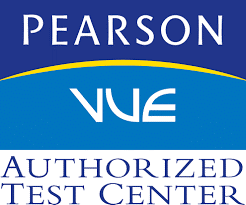
http://www.pearsonvue.com/ut/realestate/
The application for the exam might ask for a candidate ID number. Don’t worry about that, it will be assigned by PearsonVUE when you create an account in their system. You will need to provide the name of the school that you attended to complete the Sales Agent Pre-License Course, as well as your course completion date.
You can schedule your exam before you have completed the course, just make sure you leave enough time to complete the course. The exam currently costs $66 to take, every time you take it.
The Day of the Exam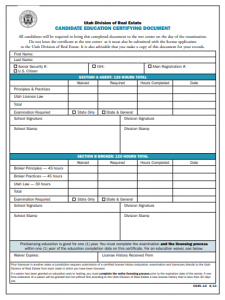
When you arrive to take the Exam, Bring these 3 things:
- A picture ID like a driver license
- An additional form of ID like a credit card
- Your Candidate Education Certifying Document
The Candidate Education Certifying Document is your proof of course completion. If you take the pre-license course online, you can download your certificate directly from your completed course. Not all the fields will be filled out on the document. Make sure that your name is filled out matching the name on your ID that you will be bringing to the test center. Also make sure that the hours completed are filled out and dated, and that the school has signed and stamped in the appropriate boxes, indicating that they certify that you have completed the required education.
When you check in to take the exam, they will have you put all of your personal items in a locker. You are not allowed to take a cell phone, a scientific calculator, or anything else with you into the test center. They may even require that you remove your jacket, so if you think you might be cold in the test center, be sure to wear warm clothing, possibly in layers to make sure you are comfortable. Then you will be directed into the testing room.
Testing Procedure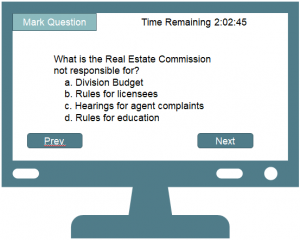
In the testing room, you will be assigned to a computer. You will be asked a few questions on the computer to verify that you can read and use the system, and then the exam will begin. You will have two and a half hours to take the General part of the exam, which has 80 questions, and you will have one and a half hours to take the Utah part of the exam, which has 50 questions.
During the 80 question General exam, you are free to skip questions, mark questions, answer questions and then go back and change your answers. You can pull up the list of questions and jump to any part that you desire. Studies show that your first answer is 80% likely to be the most correct, so don’t be too quick to change your answers. You do have a full 150 minutes to complete these questions, so take all the time you need. However, once you decide that you are done, and you click Complete, or click to move on to the Utah exam, you will no longer be able to go back to the General questions.
The Utah part of the exam has 50 questions, and you have 90 minutes to complete it. There are parts of the exam where you will be presented with an example contract, a Real Estate Purchase Contract, or REPC, and you will be required to find the answers to the questions in the example contract. You will also have an example Closing Disclosure presented, and you will need to answer questions about that. You will have the same freedom to skip around, and view any of the questions, and go back and review any of the questions in the Utah part of the exam. Use all the time you need, up to 90 minutes, before you click to Complete the exam.
Test Results
After you complete the exam, you will be taken back into the lobby, and after a few minutes, you will have your exam results brought to you. If you fail the exam, they will show you an overview of how well you did in each of the content areas on the exam, which will be a big help as you study to take the exam again. It won’t display exact numbers, but it will show you which areas you did well in, and which areas that you did not do well in. You can take this home with you, and use it to guide your study.
If you passed the exam, congratulations! Sorry, they won’t tell you your score, but that is not important. Remember that nobody will know how many times you took the exam, or you score on the exam. The fact that you passed is enough!
If you passed, you will also be given the application to get your real estate license. They will also take your fingerprints which are required as part of your license application. You will get:
- Your application to be submitted to the Utah State Division of Real Estate.
- A Qualifying Questionnaire to fill out and sign, which you will have to supply supporting documentation to any “YES” answer.
Real Estate Qualifying Questions
Remember when we talked about what it takes to qualify for a real estate license? You need to answer some questions to verify to the Division that you meet the requirements. These are called the Qualifying Questions.
- Have you ever held a real estate registration, license, or certification in any jurisdiction other than Utah?
- Have you ever had a license or registration of any kind in appraisal, mortgage, real estate, or any other occupation or profession, denied, restricted, suspended, placed on probation, or revoked?
- Have you ever resigned, surrendered, or allowed a professional registration, license, or certificate to expire, while under investigation or while action was pending against you by a government agency?
- Is any investigation or disciplinary action currently pending against you by any government agency?
- Are you currently charged with or under investigation for a felony or misdemeanor in any jurisdiction?
- Have you ever been convicted of, or pled guilty or no contest to, or entered a plea in abeyance or diversion agreement to, a felony or misdemeanor in any jurisdiction?
- Have you ever been on probation, or ordered to pay a fine or restitution or complete community service, in connection with any criminal offense or licensing action?
- Have you ever had a civil judgment entered against you based on fraud, misrepresentation, or deceit?
- Have you read and do you consent to the fingerprint notice of waiver?
- Are you under 18 years of age?
- Do you certify that you have a High School diploma or GED?
If you answer “yes” to any of these questions you will be asked to explain the details. Does a “yes” answer on any of these questions automatically prevent you from getting your real estate license? Not necessarily.
If you had a license revoked or restricted? Depending on the circumstance, you might still be able to get a license. Do you have a felony or a misdemeanor? If it’s over 5 years old, you probably can still get a real estate license.
The advice we always give to people submitting a license application is disclose, disclose, disclose. Write it all on the application. The Division of Real Estate is going to run a background check, so they are going to find out anyway! This isn’t a case where if you don’t tell, they won’t ask. If you disclose, if you write it down, they might offer you a way for you to still get a real estate license. If you don’t disclose or try to hide it, and they find it on the background check, you will get fined, probation, and maybe have your license application denied. Show your integrity and tell them anything pertinent in your personal history.
Key Takeaways:
- Schedule the exam with enough time to be prepared.
- Take practice exams that mirror the experience of the license exam
- Understand the process so that you feel confident going in to take the exam
Related Article:
Step 3: Select a Broker
Wait, select a broker? Don’t I need to get my license first?
There’s a situation here that I want you to be aware of. You have 90 days after you pass the license exam to apply for your license. But if you apply for your real estate license without having a broker lined up, then you will receive your license on “inactive” status. There’s nothing wrong with that, but it might result in an additional fee. If you get your license on “inactive” status, there will be a separate activation fee when you link up your license with a broker. If you select a broker before you apply for your license, you will avoid this separate activation fee. There we go, we just saved you $50.
Why does the law require that agents work under a broker? It is a compromise. Instead of them actively hiring supervisors to follow you around and make sure you are following all the rules, they have outsourced that to the private sector. They rely on experienced agents to take on the role of broker, and to supervise new agents. In that way, they ensure that all agents have someone to turn to when they run into a situation that they have never encountered before.
So take the opportunity to select a broker during the 90 days after you pass the exam.
How to interview a broker
The first mistake many new agents make, is thinking that it’s like a job interview. That’s only half true. The main fallacy there, is that as a real estate agent, you are working for yourself. Your business is you! Not the brokerage you work for, not your broker, you are your own boss. You are not trying to convince the broker why you should be good enough for them, you are interviewing them, to find out if they are good enough for you! You are in charge of your own career, and you need to have the right tools at your disposal to build your business. They are not hiring you, you are hiring them.
The first question that always comes up is the commission split, but don’t get too hung up on that. Yes, you need to know the split, and you need to make sure it’s fair for the work that you do. But an agent who is working hard and closing deals will be successful no matter what the commission split is. The commission is money, and I get it, it’s important, but many people let the emotions around money cloud their judgement. You need to balance the amount that you are splitting to the brokerage against the value that the brokerage gives you. Any successful business owner knows when to pay others to do work for them, and that precisely what you need to think about with the commission split. Don’t look at how much you are getting, look at how much you are paying and see how they justify that price with the services that they provide.
Training is the number 1 concern you should be looking at in a brokerage, especially new agents. You come out of the pre-license course with a strong understanding of the laws and rules regarding real estate transactions and agency, and you need that foundation in order to succeed as an agent. The next step is how to sell yourself, and how to provide the right service to your clients, so that they come back again and again. Ask about the level of training, how far does their program take you? Is it just a 4 week introduction? Do you mentor with another agent, so that you can see the principles in practice in real transactions? After you learn the ropes, and you are out on your own, what additional training is provided? Do they take average agents to the next level? How frequently are they offered? The difference between an average agent, and a rock star is that the high producing agents are constantly learning, improving their craft, shoring up their weaknesses so that they can perform at a higher level every day. Find out what your broker is willing to do to help you achieve that level of success.
Find out what support services they provide. Do they have a transaction coordinator? Do they have photography services for listings? Do they have a staging crew that can prepare a listing for showings? Do they offer meeting rooms to meet with clients? Do you need office space? Do they provide business cards? Do they provide any additional marketing opportunities? Do they collect leads that they disburse to the agents? How do they ensure the quality of those leads?
And finally, get a feel for the culture. Every office has a different feel, and you want to have a workplace and colleagues that you enjoy working with, and who make you better. You should feel great going to work each day, and supporting each other. We recommend interviewing at least 3 or 4 different brokerages so that you can see the differences in their style, and the services that they provide, so that you can find the right fit for you and your business. If you surround yourself with the right people, and work hard, you will find that success will come looking for you.
Key Takeaways:
- You are your own boss. You are hiring the broker, not the other way around.
- Look for value. Get the tools you need to succeed.
- Office culture is important. Feel good about who you work with.
Related Article:
Step 4: Submitting your Application to the State
Once you have passed your course AND state exam, the next step is to submit your application. If you have already reviewed the qualifications for licensure, then this is the easy part.
How long do you have to submit your application?
1 year from your course completion date -OR- 90 days after you take your state exam.
*Whichever one comes first.
You will need to submit your application and all documents online at:
https://dre-egov.commerce.utah.gov/
All applications must now be submitted online through the Division of Real Estate Website.
You will need to submit the following items:
- The non-refundable application fee of $152
- Completed and signed Application
- All forms you received at the testing center will need to be uploaded with your application.
- Social Security Verification Form
Remember the qualifying questions we addressed after you passed the license exam? This is where you send those answers to Division of Real Estate.
Do you need to have a broker when submitting your application?
The answer to that is no. BUT if you do not have a broker when you submit your application, your license will be put in an inactive status until you find a broker. This means that you cannot practice real estate until you change your status to active. To change your license status from inactive to active, there is an additional fee. So, if you want to avoid the fee, choose a broker before you apply for the license.
How Long Does it Take?
Processing a license application can take anywhere from 4-14 days. They will notify you when your application is complete, and send you a copy of your new real estate license.
Congratulations, you did it!
Key Takeaways:
- Be mindful of deadlines
- Be honest on the application
- Save extra fees by selecting a broker before applying
Step 5: Meet Clients!
As a real estate agent, you are now an independent contractor, which means that you can run you real estate activities any way that you like. The broker will look over your shoulder to make sure you don’t get them into trouble, and they might give you suggestions and help in your daily activities, but it is up to you to implement those ideas. It is up to you to put your feet to the ground and get to work!
Who are buyers? Who are sellers? If you are going into residential real estate sales, then your buyers and sellers are your neighbors. Your friends. Ordinary people. There are people buying and selling houses every day, you just need to meet them.
Fill your Funnel
Start by making a list of everyone that you know. You can put it into categories if it helps you to think of all the names.
Make a list of:
- Immediate family members
- Extended family members
- In-laws
- Friends
- Friends of friends
- Friends of family members
- Friends of in-laws
- Current co-workers
- Previous co-workers
- Neighbors
- Plumber
- Electrician
- Appliance Salesperson
- Appliance repairperson
- Window Washer
- Landscaper
- Mailman
- Girl scout families
- Boy scout families
- Kids friends
- Spouse’s friends
- Gym friends
- Playground friends
- Game night friends
- Sports friends
- Who sits next to you at the game
- Church group
- Hobby group
- Gas station attendants
- Everyone you meet!
You may be hesitant to work with some of the people on this list because you don’t want to complicate friendships, family relationships, or any other relationship. Well let me tell you, that it perfectly fine to separate work from personal. You don’t have to sell to your family members to be successful. However, if you write down all their names, then you can get that worry out of your mind. If you write it down, and then cross it out, then your mind is free to move on to the other acquaintances and focus on those that you do want to work with. Writing things down by hand is a powerful way to organize your thoughts. Even if you usually use the keyboard and the smart phone, writing things down is powerful.
You can’t sell real estate until you have someone to sell to. Find out who those people are, and then make sure they know you are an expert, and make yourself available when they need you.
Meet other professionals
As a real estate professional, it is valuable for you to meet lenders, inspectors, appraisers, home warranty providers, contractors, stagers, title agents, investors, and even other agents and brokers!
Find industry events to attend. Join associations. Join committees. Attend fundraisers. Introduce yourself to everyone you see at these events. Exchange business cards. Make notes on the cards of how you can benefit from their service. Make notes on the cards on how they can benefit from your service. Put a reminder on your calendar to follow up with them in person or by phone. They need to hear your voice, an email or a text is not enough.
Hone Your Skills
What are you going to say when you meet a seller for the first time? What are you going to say when you sit down for the listing presentation? What are you going to say when they tell you no?
Practice each of these conversations many times before you have them with a client. Every interaction with a client brings stress, uncertainly, sometimes confusion. If you have practiced all of your skills, and you already have practice saying the right things, then you will be more able to roll with punches, and vary your presentation to the individual.
Take every class you can, and select your instructors with care. Make sure you are learning from successful experts. They have more useful information to share than any textbook. Invest in yourself. Be willing to spend time, and sometimes money, to improve your knowledge, to expand your skillset, and to make yourself a better person. If you are a better person, you will be a better agent. If you are a better agent, you will better serve your clients. If your clients are served, then your business will bloom and grow!
Congratulations! We wish you luck in your Real Estate career!
Real Estate Broker, Pre-License Instructor, School President, Company CEO, Trainer, Mentor, Association Director, CDEI, and expert.

